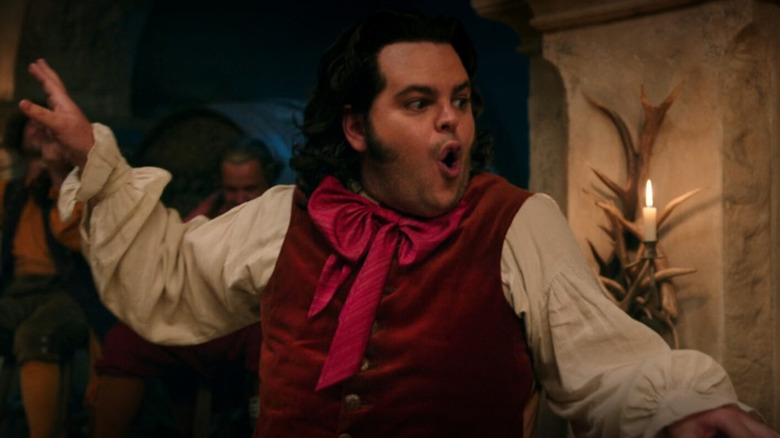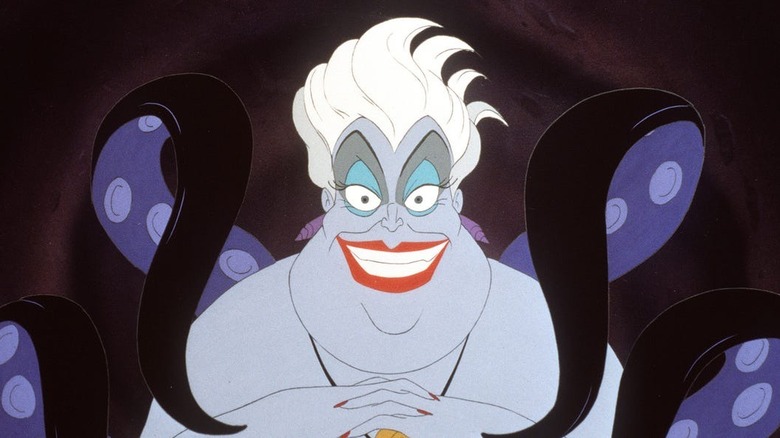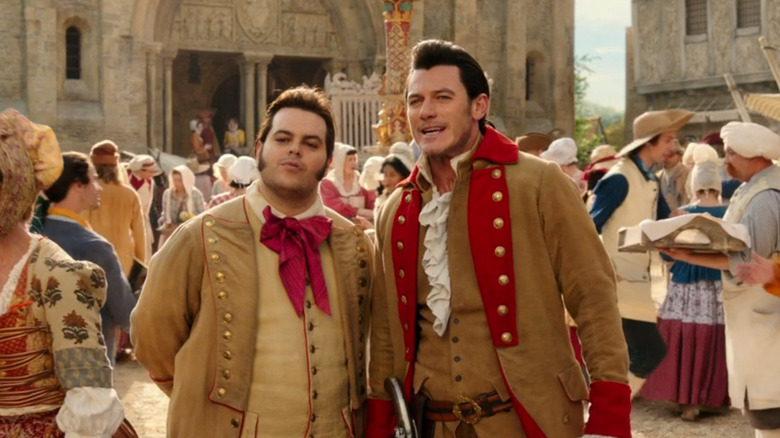Josh Gad Says Beauty And The Beast's Live-Action Retcon Of LeFou 'Didn't Go Far Enough To Warrant Accolades'
A little more than five years ago, my Facebook feed (and others like it) imploded in a flurry of angry, bigoted rage, all over the news that Disney was going to showcase a canonically gay scene in their upcoming live-action adaptation of "Beauty and the Beast." It was the first time since the 2016 election that I felt the need to do a massive unfriending spree of weirdos from my hometown who just couldn't get with the times. The headlines were everywhere, talking heads on conservative news channels debated the inclusion, and for a brief moment, the LGBTQIA+ community felt like we were finally being represented by the largest and most powerful entertainment corporation on the planet. Leading up to the film's premiere, it was made known that Josh Gad's character LeFou was going to be the first ever openly LGBTQIA+ character in an "explicitly" gay scene. The film was banned in some countries, landed a stricter rating in Russian theaters, and it was even at the center of a boycott by a drive-in theater in Alabama.
The big gay moment? The moment that sparked outrage and controversy? LeFou dances with a man at the end of the film. Seriously. That's it. Sure, he looks longingly at Luke Evans' Gaston throughout the film and it's implied that he has unrequited feelings for the villainous hunk, but the so-called "explicitly gay" moment, much like the "gay representation, I guess?" kiss in "Star Wars: The Rise of Skywalker," left all of us scratching our heads and asking, "That's it?"
The difference between queerbaiting and queercoding
Disney has a gnarly history of queer coding, the practice of applying stereotypical characteristics without allowing them to be explicitly queer. Scar from "The Lion King?" Gay. Jafar from "Aladdin?" Gay. Ursula in "The Little Mermaid?" LITERALLY DESIGNED AFTER THE DRAG QUEEN AND JOHN WATERS' MUSE, DIVINE! GAY! GAY! GAYYYYYY! Honestly, just about every Disney villain is coded as either gay or Jewish (or, in the case of Captain Hook, both), but that's a whole other article.
Coding can provide visibility for those who do see themselves in the subtext of characters, but it can also provide unfortunate subtextual messaging to society at large. I've been compared to Ursula throughout my life by people intending it to be an insult, but I instead revel in my fat, queer, too-much-eye-makeup-wearing, sea witch glory. Disney knows that the LGBTQIA+ community has embraced their villainous coding, and it inspired a pivot to all-out queer baiting, or using the promise of queer themes to "bait" audiences to tune in. Writer Leigh Monson said it best in their review for "Luca" last year:
"From embracing decades of queer coding in its villains as a sort of camp sub-brand marketed to the gays who identified with them growing up, to the decade-long cycle of breathless news stories about how Disney has finally included a gay character in one of their films—only to have a single effeminate man receive a blink-and-you-miss-it confirmation that they might have a male partner—Disney loves to play to a queer audience with the conviction that we will be satisfied with scraps of subtlety."
F******, preach.
Josh Gad speaks out
Fortunately, anyone disappointed by the embarrassingly piss-poor excuse for representation can take solace in knowing that Josh Gad hears our sentiments, and agrees with them. "We didn't go far enough to warrant accolades," Gad said to The Independent in an interview following the announcement that the planned prequel series focusing on LeFou and Gaston had been delayed. The actor continued:
"We didn't go far enough to say, "Look how brave we are." My regret in what happened is that it became 'Disney's first explicitly gay moment' and it was never intended to be that. It was never intended to be a moment that we should laud ourselves for, because frankly, I don't think we did justice to what a real gay character in a Disney film should be."
Gad did mention that he is proud that LeFou's queerness is part of his character's arc but that he didn't believe the representation did the job. "Everybody deserves an opportunity to see themselves on screen, and I don't think we've done enough — and I certainly haven't done enough to do that," he said.
Shortly after the film's debut, director Bill Condon expressed that he felt the attention to the moment was "overstated," claiming that it was not meant to be made into such a big deal. It's good that Gad has now also acknowledged this, because the ways in which huge studios try to throw celebratory accolades upon themselves for their so-called "inclusion" of queer characters in massive blockbusters is not just insulting, but frankly, embarrassing. Studios don't deserve a cookie for queerbaiting audiences only to deliver half-second moments or scenes that can be easily edited out to avoid overseas censorship. We deserve better.


